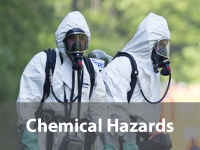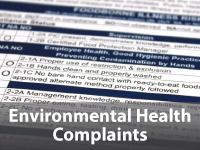Sewage & Septic Management

Disease Prevention
The goal of the Land Use Program is to reduce and prevent the existence of many diseases such as dysentery, infectious hepatitis, typhoid and paratyphoid, and various types of gastrointestinal problems that may be transmitted from one person to another through the fecal contamination associated with improperly maintained septic systems. Primary duties include oversight and regulatory compliance to assure the proper disposal of human wastes. The regulatory framework for this program is found in the Department of Human Resources Rules for On-Site Sewage Management Systems, Chapter 290-5-26.
Waste Water Management
Safe disposal of all wastes, human, domestic and industrial, is necessary to protect the health of the individual family. All waste should be disposed in such a manner that:
- It will not contaminate any approved drinking water supply.
- It will not create a public health hazard by being accessible to insects, rodents or other possible carriers of disease that any come into contact with food or drinking water.
- It will create a public health hazard by being accessible to children.
- It will not violate laws or regulations governing water pollution or sewage disposal
- It will not pollute or contaminate the water of any bathing beach, shellfish breeding ground, stream or lake used for public or domestic water supply or for recreational activity.
- It will not create a nuisance due to odor or unsightly appearance.
On-Site Sewage Management
On-site sewage management includes permitting and inspection of systems for residential and commercial use and review of subdivision developments utilizing on-site sewage management. Regulation of theses systems ensures correct installation and proper repair to minimize health problems related to untreated human sewage and helps protect groundwater, drinking water, and surface water from harmful organisms and chemicals that can cause illness.
Regulated systems include individual residential and commercial septic and advanced treatment systems, small community systems, and other on-site waste management systems including portable toilets and the pumpers/haulers used to remove waste. New systems and existing systems that are being upgraded are inspected and permitted. On-site system failures, such as raw sewage appearing on the ground, are investigated. All repairs are then inspected and permitted.
Not all lots are suitable for on-site sewage management. Site reviews of individual and subdivision lots prior to development ensure that the lots are suitable for on-site sewage management and that installation of an appropriate system is planned. Pre-purchase site evaluations can also be performed.
Contact Your Local Environmental Health Office
Call your nearest health department with any questions or concerns!
Learn about our related health services:


 Contact Us
Contact Us Locations
Locations Job Openings at North Central Health District
Job Openings at North Central Health District Internships
Internships Board of Health
Board of Health Cost and Insurance
Cost and Insurance Privacy Policy
Privacy Policy Teens & Adults
Teens & Adults For Children
For Children Other Programs
Other Programs County Environmental Health Offices
County Environmental Health Offices Chemical Hazards
Chemical Hazards Tourist Accommodations
Tourist Accommodations Food Service
Food Service Rabies Control
Rabies Control Lead Poisoning Prevention
Lead Poisoning Prevention Body Art
Body Art Land Use
Land Use Swimming Pool Program
Swimming Pool Program Water Testing for Private Wells
Water Testing for Private Wells Environmental Health Complaints
Environmental Health Complaints Georgia Food Recall Alerts
Georgia Food Recall Alerts Personal & Family Preparedness
Personal & Family Preparedness Emergency Preparedness for Functional & Access Needs
Emergency Preparedness for Functional & Access Needs Severe Weather Preparedness
Severe Weather Preparedness Emergency Preparedness Training
Emergency Preparedness Training Medical Reserve Corps
Medical Reserve Corps Regional Healthcare Coalitions
Regional Healthcare Coalitions Strategic National Stockpile/Medical Countermeasures
Strategic National Stockpile/Medical Countermeasures






